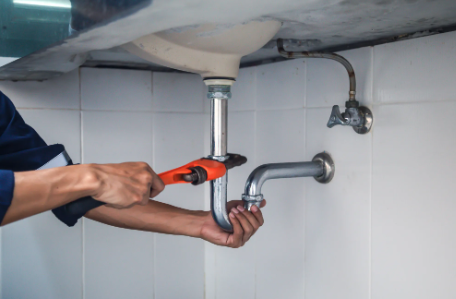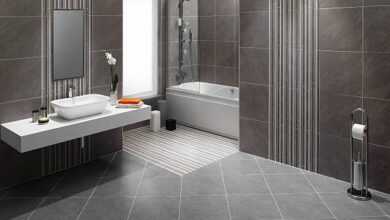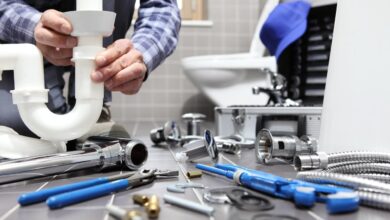How to Prevent Drain Clogs and Keep Your Plumbing System Running Smoothly

A smoothly running plumbing system is essential for maintaining a clean, functional home. Drain clogs are among the most common plumbing issues that can disrupt your daily routines, causing everything from slow-draining sinks to more severe problems like pipe damage and backups. While some clogs are unavoidable, many can be prevented with a proactive approach to maintenance and mindful habits. We will explore how to prevent drain clogs and keep your plumbing system in top condition, including practical tips for kitchen, bathroom, and outdoor drains.
Ways to prevent drain clogs
- Dispose of Kitchen Waste Properly
One of the most common causes of drain clogs occurs in the kitchen, where improper food waste disposal can lead to blocked pipes. Grease, oil, and fat are particularly problematic, as they may seem harmless when poured down the drain in liquid form but solidify once they cool, sticking to the walls of pipes and gradually causing blockages. To prevent this, avoid pouring grease or oil down the drain. Instead, collect it in a container and dispose of it in the trash once it solidifies. Additionally, food scraps should be thrown into the garbage or compost bin, even if you have a garbage disposal. Stringy or fibrous foods like celery, potato peels, and coffee grounds can create tough clogs when combined with grease or soap. Regularly flushing your kitchen drains with hot water, vinegar, and baking soda solution can also help break down minor build-ups and keep the pipes clear.
- Be Mindful of What Goes Down Bathroom Drains
Bathroom drains are another common source of clogs, particularly due to hair, soap scum, and hygiene products. Hair is one of the primary culprits of bathroom clogs, especially in shower and bathtub drains, where it tends to accumulate and form dense blockages. To prevent this, consider using a drain guard or hair catcher to trap hair before it enters the drain. These inexpensive devices can be cleaned regularly to prevent clogging. In addition, soap scum and toothpaste residue can gradually build up inside bathroom sinks, leading to slow drainage. Avoid using heavy, oil-based soaps, which contribute to clogs, and periodically clean your sink and shower drains to remove buildup. Finally, never flush items like wipes, cotton swabs, or feminine hygiene products down the toilet, as these can cause severe blockages in the plumbing system. Even products labeled as “flushable” can cause problems over time, so it’s safer to dispose of them in the trash.
- Use Drain Screens and Guards
Drain screens and guards are simple yet effective tools for preventing clogs in your home. These devices act as barriers that catch hair, food particles, and other debris before they enter the pipes. In the kitchen, drain screens can help catch food scraps that would otherwise contribute to blockages, while in the bathroom, hair catchers prevent clogs caused by tangled strands. Drain guards come in various sizes and are easy to install over your existing drains. They can be removed and cleaned regularly, ensuring your plumbing system remains debris-free. By using these guards in high-risk areas like the kitchen sink, shower, and bathtub, you can prevent many common drain clogs before they occur, helping maintain smooth water flow and avoid costly repairs.
- Be Cautious with Chemical Drain Cleaners
While it may be tempting to use chemical drain cleaners to clear minor clogs, these products can cause more harm than good. Many chemical cleaners contain harsh ingredients that can erode or weaken your pipes over time, leading to more serious plumbing problems. Additionally, chemical drain cleaners are often ineffective against stubborn clogs or large blockages, meaning you may still need to call a plumber to address the issue. Instead of relying on chemical cleaners, consider using natural alternatives like vinegar and baking soda, which can help break down minor buildup without damaging your pipes. Pour half a cup of baking soda down the drain, followed by half a cup of vinegar, and let it sit for about 30 minutes before flushing with hot water. This method is safe for most plumbing systems and can help keep your drains clear without the risk of long-term damage.
- Maintain Your Plumbing System with Regular Cleaning
One of the most effective ways to prevent clogs is to maintain your plumbing system with regular cleaning. Routine maintenance can help keep buildup at bay and ensure your drains function properly. In the kitchen, flush your drains with hot water after using the sink to help wash away any leftover grease or food particles. You can also use a combination of vinegar and baking soda monthly to clean and deodorize your drains. In the bathroom, regularly clean drain covers, sinks, and showers to prevent soap scum, hair, and other debris from accumulating. Consider having your plumbing system professionally inspected and cleaned by Evans Plumbing and Sewer Inc. once a year for more thorough cleaning. Plumbers can use specialized tools like drain snakes or hydrojetting to remove stubborn clogs and buildup, keeping your pipes in top condition and preventing future blockages.
- Watch for Early Warning Signs
One of the keys to preventing serious clogs is paying attention to early warning signs that indicate a problem is developing. Slow-draining sinks, gurgling noises, or foul odors from your drains can all be signs of a clog forming. If you notice any of these symptoms, immediately address the issue before it escalates into a full-blown blockage. Cleaning your drains with a natural solution, using a drain snake, or checking your drain guards for trapped debris can help resolve the problem in its early stages. Addressing these issues promptly can prevent more significant clogs that require professional intervention.
Preventing drain clogs and keeping your plumbing system running smoothly requires a combination of mindful habits, regular cleaning, and protective tools like drain guards. Homeowners can significantly reduce the risk of clogs by properly disposing of kitchen waste, being mindful of what goes down bathroom drains, and avoiding chemical cleaners. Regular maintenance and attention to early warning signs will further ensure that your plumbing system stays in good condition, saving you time and money on repairs in the long run. Taking a proactive approach to drain care will help you enjoy a smoothly-running plumbing system for years.




